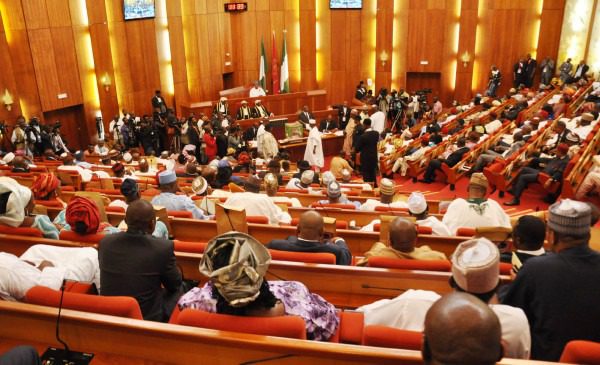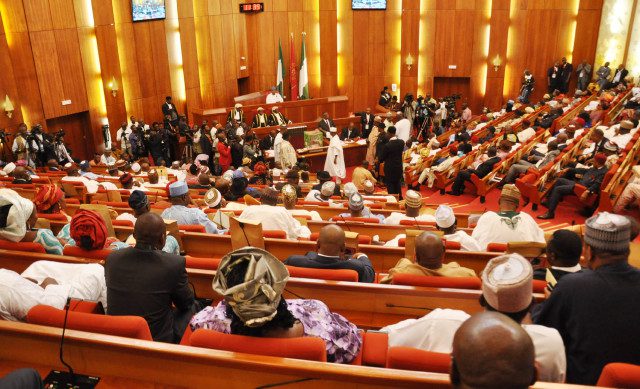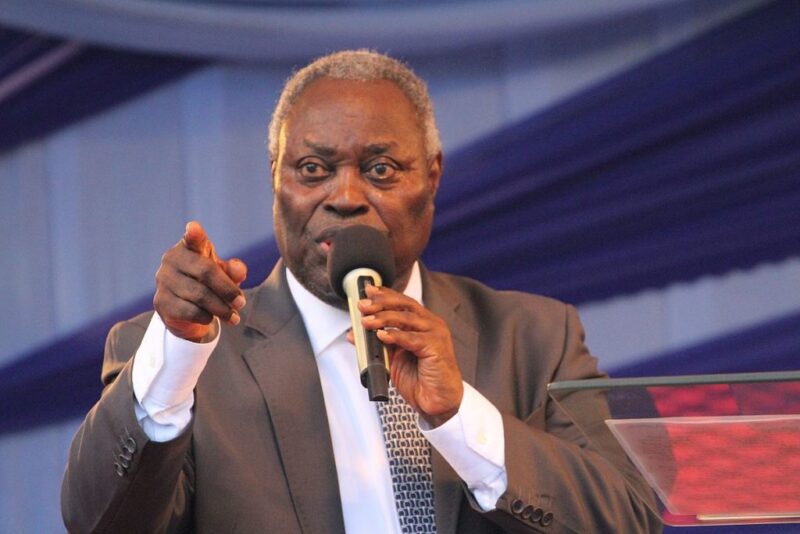Political Issues
Legislature As Delineator Of Democracy -By Chidi Omeje

Concerned about the need to preserve political liberty, guard against oppression or political indiscretion and abuse of power in governance, French political philosopher, Montesquieu wrote: “Political Liberty is to be found only when there is no abuse of power. Constant experience shows us that every man invested with power is liable to abuse it, and carry his authority as far as it will go. To prevent this abuse, it is necessary from the nature of things that one power should be a check on another…. When the Legislative and Executive Powers are united in the same person or body… there can be no liberty… again there is no liberty if the judicial power is not separated from the legislative and executive. There would be an end of everything if the same person or body, whether of the nobles or of the people, were to exercise all three powers”.
In other words, the inexorableness of distinct powers, roles and functions of each of the three organs are the conditions precedent for any system of government to wear the garb of democracy or lay claim to its resemblance. More importantly, by its popular definition – government of the people, by the people and for the people, democracy derives its essence in the full participation and representation of the people in the governance structure. The fact that the people, through their representatives at the legislature make laws for themselves and decide the kind of policies that should be operable in the society, brings to the fore, the inevitability of the legislature in a democracy.

It is worth reiterating that when referring to democratic governance, whether parliamentary or presidential, the organ of government that captures the mind most as epitomizing the concept is the legislature. And as such, it is the performance of key functions of representation, legislation and oversight that legislators/parliamentarians can actively engage in the development and implementation of laws, policies and practices that promote democracy and good governance. Contrastingly, in military regimes or monarchies, only the Executive and the Judiciary are in action, as the people really have no say in the formulation or abrogation of laws of the land. If you diminish the relevance or importance of the institution of Legislature, you have stripped our democracy of its primary element.
The foregoing was to set the tone for a clear understanding of the constitutional primacy of the legislature in a democracy and to stir our collective interests and concern about the ongoing orchestrated shenanigans aimed at bringing the Senate of the Federal Republic of Nigeria to its knees by some hawks who are hell bent on unconstitutionally removing the Senate president from office. It could be recalled that the Senate President, Dr Bukola Saraki, defected from the ruling All Progressive Congress (APC) to the opposition Peoples Democratic Party (PDP) in July 2018. This action triggered off hysteric calls and threats for his resignation or impeachment by some elements in the ruling party. And in other to make good their threats, these elements and their proxies have insisted in engaging extra constitutional means to achieve their goal.
The contention of this article is not whether Saraki or his deputy, Ike Ekweremadu can be removed from office or not. Of course, they can be removed by their colleagues who elected them; however, DUE PROCESS must be followed and RULE OF LAW obeyed to the letter. Anything outside the stipulated process of their removal is tantamount to resort to self-help, which every right-thinking Nigerian must stand up against.
The Senate as the upper chamber of Nigeria’s parliament is and ought to be governed by law not by wills of any aspiring dictator or the caprices of a whip-in-the-hand headmaster determined to intimidate and whip everybody into line. The law clearly states that to elect the Senate President or his Deputy, it will take a simple majority of members. On the other hand, to remove any of them requires two-third majority of members of the Senate (that is, 73 out of the 107 Senators). This is very simple and we have antecedence to this constitutional practice. When Senators of the 4th Assembly felt they no longer wanted Chief Evans Enwerem, 90 of them voted against him and sacked him. Dr Chuba Okadigbo, who replaced Enwerem was also removed by 82 of his colleagues. We did not hear nor see anything extra-judicial or extra-constitutional then and there was no threat to overrun the institution as we are now assailed. Everybody, including the affected officials simply moved on with their lives and our democratic credentials got enriched with experience and antecedence.
So why are we now working hard to move backwards? Why this irrational resort to under-hand tactics in seeking to do what could be done very orderly without breach of our constitution? What is the reason for the kind of desperation we are seeing today? Why was it important to invade the official residences of Saraki and Enweremadu with gun totting policemen? Why was it expedient to invade the National Assembly with hooded operatives of the DSS to block parliamentarians and their staff from gaining access to their offices? Why is it helpful that the APC Chairman, Adams Oshiomhole is ceaselessly heating up the polity with his provocative statements and threats? Why are even fringe groups like Myetti Allah joining in the fray to threaten and stampede Saraki out of office? Do these fellows not know that their actions, utterances and posturing in this issue are clear and unambiguous invitation to chaos and anarchy? How much more can we endure the willful and desperate assaults on this very indispensable institution of democracy before it is too late?
*Chidi Omeje is of the Partnership for Defence of Democracy.



















